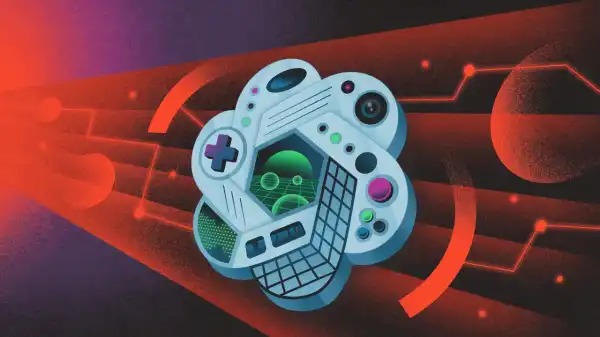
Save this storySave this storySave this storySave this story
Last week, OpenAI announced it was acquiring io, a company that makes AI products. The firm was co-founded by Jony Ive, a highly respected designer best known for his collaboration with Steve Jobs at Apple. Ive was responsible for the original iMac, iPad, and Apple Watch, among other iconic devices. In 2019, he left Apple to start his own design company, LoveFrom. The news of his move to OpenAI was like LeBron James signing with the Miami Heat: Ive has become a symbol of Apple’s success, second perhaps only to Jobs. Now, after a period of independence, he’s reassembling his team. The OpenAI deal — worth $6.5 billion in OpenAI stock — was announced in a press release that included a very nice portrait of Ive with OpenAI CEO and co-founder Sam Altman (photographed by British fashion photographer Craig McDean) and a casual video interview recorded at Zoetrope in San Francisco. In the video, Altman talks about “a family of devices that will allow people to use AI to do amazing things,” made possible by “magic intelligence in the cloud.” The symbolism of their partnership was clear: Altman is the new Jobs, and together with Ive, they promise to build the next device that will change our lives the way the iPhone did. Once it’s ready, they claim they’ll be able to ship 100 million units “faster than any company” ever has.
We don’t know what the device will look like yet, but Altman promises it will be “the most amazing technology the world has ever seen.” Respected Chinese Apple analyst Ming-chi Kuo reported on X that the product is planned to be “as compact and sleek as an iPod Shuffle,” and that it will be equipped with “cameras and microphones to analyze the environment.” It may resemble other early AI devices that have been announced or released in the past year, such as Friend, another pendant-style chatbot companion; Humane, an AI pin with a laser projector; or Rabbit, a small, portable gadget. The functionality of these early inventions, however, remains fairly limited. “Vaporware” is a term of art from the ’80s, popular in the early internet era, that refers to new software or technology that promises too much but fails to deliver on its promises — if the product ever makes it to market. No matter how many exciting headlines there are about the OpenAI acquisition, until Altman and Ive prove otherwise, it’s all just empty talk. After all, generating hype is one of OpenAI’s greatest achievements: despite predictions that ChatGPT will change the world, the company is losing billions of dollars every year.
In the meantime, we can imagine what an AI-powered iPhone might be like, based on existing technologies. Generative AI is already part of many of our everyday digital interactions, whether we like it or not. The iPhone can now summarize text streams using AI and let users create their own emoji. Google recently announced an “AI mode” that will replace the traditional search box, a development that could reduce traffic on the open web to a minimum. Meta’s “AI glasses,” created in collaboration with Ray-Ban, combine voice chat and instant translation with the company’s AI assistant. And chatbots with diverse personalities, like Replika and Character.ai, are becoming increasingly popular as they get better at mimicking human conversation. Perhaps Altman and Ive’s device will combine all of these features: It will be able to listen to and interpret the sounds around you; respond with predictive text, delivered instantly and in a personalized tone; and become your primary means of accessing information, like a personal concierge. It won’t reportedly try to supplant the other technologies you rely on: Altman described it as a kind of third device, designed to work in an ecosystem with your laptop and smartphone, according to the Wall Street Journal. But it will actually be a self-surveillance device, creating a technological network for your personal reality. Ive’s involvement evokes the inevitable iPhone associations, but that’s not necessarily a compliment; for many of us, the AI iPhone feels less like a utopian promise than a threat that AI will soon become ubiquitous and inevitable. Smartphones already consume us with their screens, creating personalized information bubbles; ubiquitous AI will only intensify that atomization by being more automated, more complex, and more inevitable.
The video claims that more information about the new product will be shared next year, which would mean that we are currently in the Palm Pilot stage of AI – with an iPhone-like invention looming around the corner, ready to crush the competition. However, there are huge logistical hurdles to achieving this optimistic timeline for consumer AI adoption. More than a billion people worldwide own an iPhone. Some research suggests that creating a typical AI-powered email requires a bottle of water to siphon heat from data center servers into separate cooling towers. This means that if we all started using our personal AI devices dozens of times a day, as we do with our iPhones, the environmental toll of our technology would skyrocket – imagining
Sourse: newyorker.com